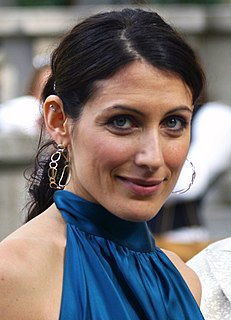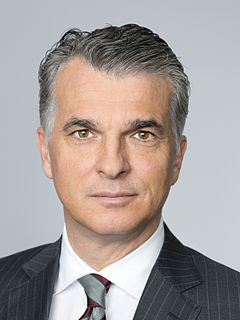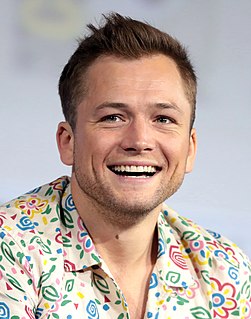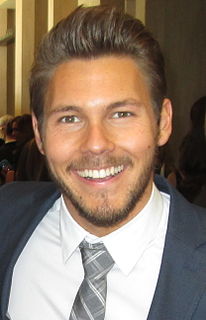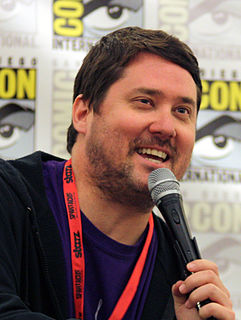A Quote by Giancarlo Esposito
What I love about 'Breaking Bad' is the reflection of many people's - it's more real in terms of people have faults, people have character traits that they don't like about themselves. It resembles more of what the human journey really is and it's less fantastic and hero-driven than other characters and shows that we watch.
Related Quotes
I do think that people get really emotionally involved in the TV shows that they love and I think that is fantastic. Of course they are going to have opinions. The other thing is that people project onto their television shows. They see a character and layer on many traits that are actually their own or their idea of what that character is.
I love things that are brave enough to be nakedly about what our lives are actually built of, when you're wild about someone, or you love something, or you're a fool, or you embarrass yourself. And I don't think the answer is cynicism. Cynicism is not the cure for sentimentality. Cynicism is its own form of sentimentality. For example, I tried to watch Breaking Bad. After three episodes, I thought, I don't like this guy. I don't care about him. But you can see why people tell themselves that they think this is real. But real doesn't mean bad.
Can a bank that is part of this society be sure that it has no bad apples? No, because, like in all other industries and companies, it's about people, and what you see is the reflection of the good and bad in society. So you employ people that you think are honest, but you have to manage them more and more with an eye towards missteps.
The endless teen franchises that come out of Hollywood... more often than not, the central character doesn't have any discernible character traits. They're just the young, good-looking guy who goes on this journey. They're always played by fantastic young actors, but ultimately, they're not very interesting characters.
I really do think that Breaking Bad is probably the greatest television show that's ever been made. Just in terms of, everything, it's flawless. I can't think of one flaw with Breaking Bad. Every other show, even shows that I really, really love, they're not perfect. Breaking Bad, to me, is a perfect show.
People were fed up with reality shows about midgets getting married and weird Jerry Springer talk shows. There had been a real dry spell of intelligent family-oriented viewing: the type of program that Mom, Dad and the kids can all watch together. With 'Lost,' there are just so many characters for people to invest in.
If you want to write about a person who isn't nice, people say, "This is a bad book. It's about somebody I couldn't stand." But that's not the point. You don't have to like a character to like a book. Most of the time, people would misjudge and say, "I didn't like the book." No, you didn't like the character. That doesn't make it any less interesting of a book. In fact, to me, it makes it more interesting.
Since my act is a goofy reflection of what's going on in my life, I started doing pot jokes, and I noticed that audiences invariably love pot jokes. Even people who don't smoke pot think it's a funny subject. So when I started getting laughs, I started doing more material about it. When people come to see my shows, there are a lot of stoners in the audience, but there are also a lot of people who just like me. So I try to give a healthy mix, where people aren't going "There are too many jokes about pot!" or "There's not enough jokes about pot!"

